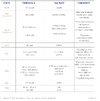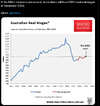- Joined
- 8 June 2008
- Posts
- 13,378
- Reactions
- 19,797
Then market being supply demand, it would be interesting to see the price trend of used cars , and the various segments.Or are people who might previously have bought a new car now buying used instead?
It is a very hard sector to analyse.
Are people buying non expensive ones et reducing amount spent?
Population growth?
Migrants buy extra second hand cars, and 18y old kids..or parents for kids..but otherwise,it is often one bough and one put for sale...
In overall numbers, migrants and population growth add demand, write off in accidents, blown engines and steal and burn reduce the supply.
And if you do not have access to dealers trade-in market/new car sold..hard to draw anything from these numbers imho






